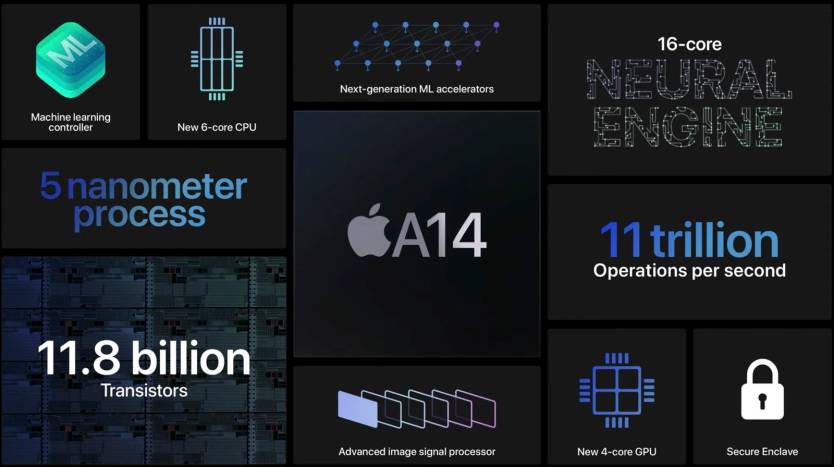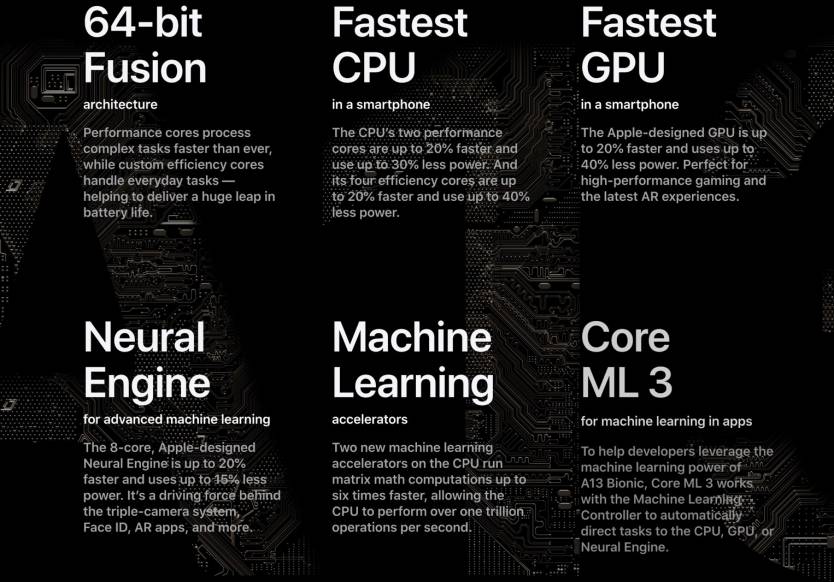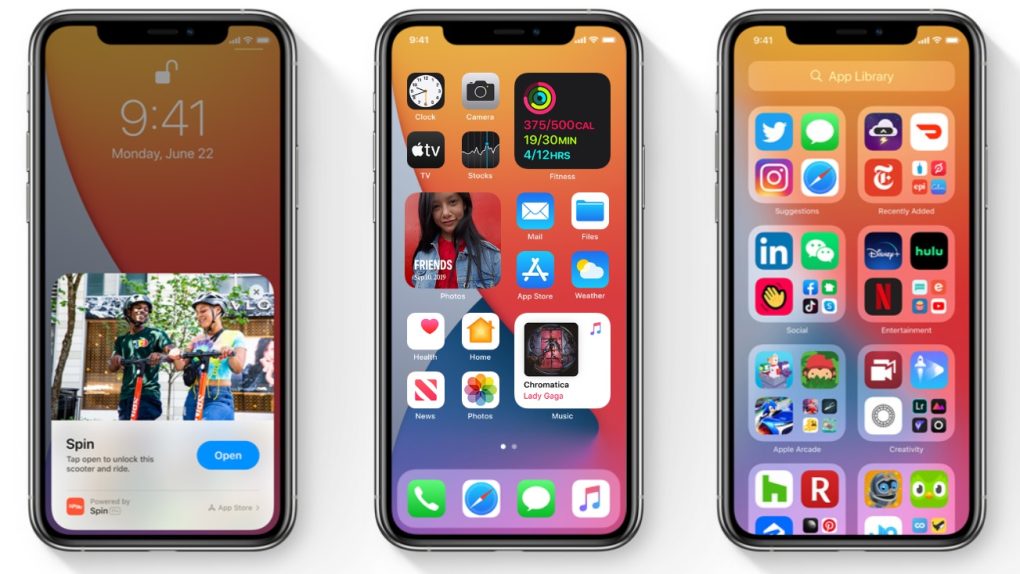- There was no iPhone 12 talk during Apple’s “Time Flies” press conference, but the company did reveal a key spec of the next-gen smartphone series.
- The A14 Bionic chip that will power the four rumored iPhone 12 models has been confirmed, as Apple will make use of it inside the brand new iPad Air tablet.
- Thanks to Apple’s iPad presentation, we have the first estimate on how much faster the iPhone 12 will be compared to the iPhone 11.
Rumors said that the 4th-generation iPad Air would run on Apple’s brand new A14 chip as we went into Apple’s “Time Flies” event on Tuesday. That’s the processor we expect to see inside every iPhone 12 model, which have all been delayed. A variation of the A14 Bionic could then power the iPad Pros of the future, while a different member of the same 5nm chip family would be used inside Apple’s first ARM MacBooks.
But Apple did the unthinkable and announced the A14 Bionic ahead of the iPhone 12. The new iPad Air will indeed pack the powerful new chip, and Apple insisted on the new performance boost expected from the silicon upgrade. That may be enough to tell us exactly how much faster the iPhone 12 will be compared to the iPhone 11.
The iPad Air 4 rocks the A14 Bionic chip that will power the iPhone 12, just as the 3rd-gen model featured the same A12 Bionic System-on-Chip that Apple used in its 2018 iPhones, including the iPhone XS and iPhone XR.
Apple said during the event that the A14 is 40% faster than the A12 and that the new GPU will deliver a 30% performance increase. The chip experts at AnandTech did the math and came up with the conclusion the A14 CPU would roughly be 16% faster than the A13 Bionic inside the iPhone 11 series and iPhone SE. On the GPU side, the A14 would give the iPhone 12 an 8.3% performance boost over the iPhone 11 in the graphics department, “which is actually quite meager,” according to the blog.

These are unconfirmed figures, and they’re based on Apple’s performance estimates from the Time Flies event and Apple’s figures from last year’s iPhone 11 presentation, where it explained the A13 performance improvements. Apple does this every year, highlighting the CPU and GPU speed gains of the new iPhone.
The more formidable upgrade concerns the Neural Engines, which features double the number of cores capable of up to 11 trillion operations per second (TOPs) performance. That’s more than double the A12’s TOPs and 83% more than the A13’s 6TOPs.

AnandTech notes that Apple wasn’t perfectly clear about the 40% performance boost during the iPad Air — “is it single-threaded performance? Is it a multi-threaded performance? Is it for the large or the small cores?”
The blog also notes that one potential explanation for the “rather conservative” performance gains over the A13 concerns peak performance:
The one explanation and theory I have is that Apple might have finally pulled back on their excessive peak power draw at the maximum performance states of the CPUs and GPUs, and thus peak performance wouldn’t have seen such a large jump this generation, but favour more sustainable thermal figures.
Apple’s A12 and A13 chips were large performance upgrades both on the side of the CPU and GPU, however one criticism I had made of the company’s designs is that they both increased the power draw beyond what was usually sustainable in a mobile thermal envelope. This meant that while the designs had amazing peak performance figures, the chips were unable to sustain them for prolonged periods beyond 2-3 minutes. Keeping that in mind, the devices throttled to performance levels that were still ahead of the competition, leaving Apple in a leadership position in terms of efficiency.
However, the same AnandTech says there is at least one argument against that theory, and that’s the fact that Apple has not mentioned efficiency improvements. The A14 Bionic is the world’s first 5nm processor that will be available commercially, and it should be more energy-efficient than the A13.
Apple will surely give us an in-depth look at the A14 chip during the iPhone 12 event next month, at which point we’ll know precisely what sort of performance upgrade to expect over the iPhone 11. No matter where those percentages end up, there’s no question that the A14 will have no match over on Android.







